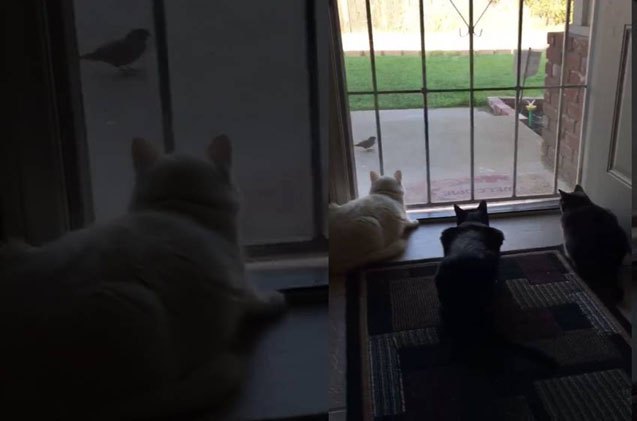The idea of “doggy smell” isn’t exactly foreign to dog parents. Whether they’ve been digging in the dirt or playing in a puddle, it’s all part of sharing our homes with our furry friends. But sometimes even that familiar scent takes a sharp and unpleasant turn. That unusual or strong “off” smell, whether it’s coming from their breath, their skin, or… the other end, may be more than just a minor annoyance. It could be a sign that something isn’t quite right.Your first instinct may be to check their ears, their teeth, and maybe even the backyard to search for things they may have gotten into. However, we often overlook the most critical place we should investigate: the dog bowl.Your dog’s food is the fuel that keeps them going, directly impacting everything from their gut health to their skin and coat condition. That means it’s also possible their food could be contributing to the recent (and likely unwanted) change.Keep reading to learn how your dog’s diet can directly and indirectly contribute to body odor, excessive gas, or foul breath. Plus, I’ll provide you with some actionable tips to help address and reduce that unwelcome odor, allowing your pup to get back to being their best (and best-smelling) self.How Can Your Dog’s Diet Cause an “Off” Smell?The idea that your dog’s diet can have an impact on their overall well-being makes sense, at its root. But how exactly can your dog’s diet change how they smell? When we discuss odors directly, we’re primarily referring to the digestive system. If a dog’s gut isn’t happy, it often lets you know through smell. But that’s not the only reason. Here are a few possible explanations:Gastrointestinal Distress & Excess GasPerhaps the most common complaint is the presence of foul-smelling gas. I know, our dogs have had their fair share of stinky farts. While some gas is normal, excessive or unusually foul odors can be a sign of digestive problems. This often boils down to food intolerances or sensitivities.Dogs, much like people, can struggle to properly break down certain ingredients in their food. Common culprits include specific protein sources (such as beef or chicken, especially if the dog has developed a sensitivity over time), certain grains (like wheat or corn), soy, or dairy products. When the dog’s small intestine can’t fully digest these ingredients, the undigested material travels to the large intestine, where bacteria rapidly ferment it. It is this fermentation process that is responsible for the rotten-egg odor.Similarly, diets containing high fiber or hard-to-digest ingredients (such as low-quality fillers or certain complex carbs) can increase gas production because they essentially act as food for bacteria in the lower gut.Another common culprit is a sudden change of diet. When dogs switch to a new food, it often takes a little time for their digestive system to adjust, leading to a period of increased gas. Sudden diet changes are even more challenging, disrupting the delicate balance of the gut microbiome and causing a temporary period of chaos (and unpleasant odor).Halitosis (Bad Breath)While bad breath in dogs is generally caused by dental problems, it’s important to note that your dog’s diet also plays a role in their dental health.When dogs eat soft, starchy, or high-carb foods, these particles easily get stuck on their teeth. This provides a feast for bacteria in the mouth. Over time, this collection of food particles leads to plaque and tartar buildup, eventually resulting in periodontal disease. The bacteria and infections present in gum disease are a major, often rotten, source of unpleasant smells from the mouth. Simply put, their diet fuels the bacteria that cause dental decay.Less commonly, strong breath odors may be related to the diet itself. For example, when a dog ingests highly concentrated fish oils or strong-smelling foods.In more severe cases of digestive troubles, the odors may actually be traveling from the stomach itself due to issues such as acid reflux or chronic indigestion. Other noticeable signs, like regurgitation or excessive lip-licking, often accompany these conditions.Anal Gland IssuesA strong, distinct fishy odor is a classic sign of issues with the anal glands, the two small sacs near the rectum. These little sacs naturally secrete a strong-smelling fluid when your dog does their “business,” triggered by the movement of firm, properly-formed stool putting the right amount of pressure on them.If a dog’s diet is lacking sources of quality fiber or is highly irregular, the resulting stools may be too soft, small, or mushy. This prevents the necessary pressure on the anal glands, leading to them becoming full, impacted, or even infected. When a dog strains, scoots, or a full gland leaks, the resulting odor is unmistakable and is a clear sign that their diet needs to be adjusted to improve their stool quality.Allergic Reactions & Skin Irritation One of the most common diet-related skin problems is the irritation caused by food-related allergic reactions or sensitivities. When a dog’s immune system reacts to a protein or other ingredient in their food, it can trigger inflammation in the skin, especially the skin located on the paws, ears, and belly. This irritation creates the “itch-scratch-odor” cycle. What does that mean? As the dog scratches and licks the inflamed area, it compromises the natural skin barrier, creating a warm, moist environment that encourages the overgrowth of yeast that naturally lives on the skin. This excessive growth of yeast is often associated with a musty, sweet odor that can be compared to the smell of corn chips. Here’s a quick breakdown of that cycle in action: Allergen Ingestion: A protein (like chicken or beef) triggers an immune response. Inflammation & Itching: The skin becomes red, irritated, and extremely itchy. Licking & Scratching: The dog damages the skin’s protective barrier trying to relieve the itch. Yeast Overgrowth: The damaged, moist skin encourages yeast growth, causing the signature odor, often accompanied by redness, darkening, or thick “elephant” skin. If the skin breakdown is severe, secondary bacterial infections can also take hold. This can lead to much stronger, sometimes foul or rancid odors that require veterinary attention to clear up.
























